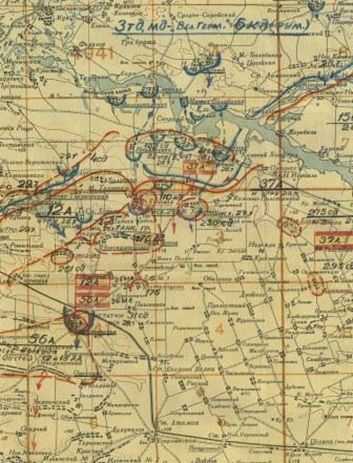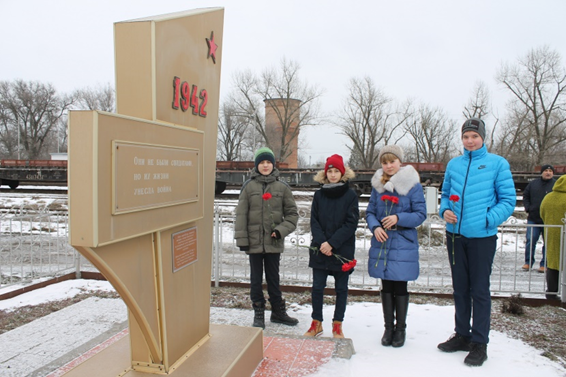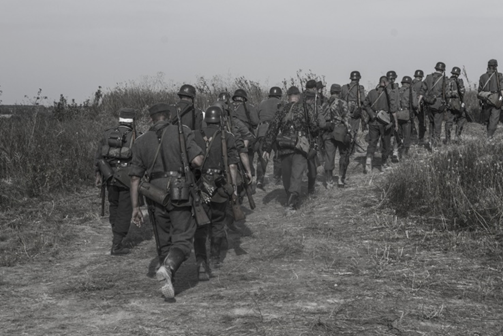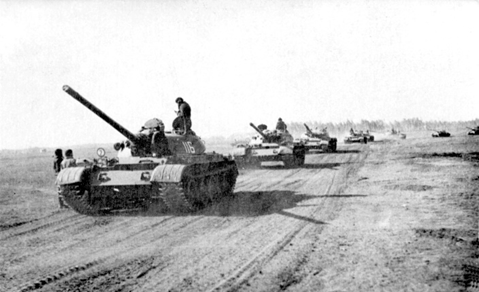|
offensive [əˈfensɪv] - агрессивный, наступательный cart [kɑːt] - телега, повозка clashes [klæʃ] - столкновения outskirts [ˈaʊtskɜːts] - окраина estuary [ˈesʧʊ(ə)rɪ] - устье реки, лиман
We must not forget this victory!
|
Учитель английского языка МБОУ ЕСОШ №1 Шевченко Наталья Михайловна The tragic summer of 1942 76 years have passed since the day of the Victory in the GreatPatriotic war, but its echo till now doesn`t calm down in humans` souls. We haven`t the right to forget the horror of that war. We haven`t the right to forget those soldiers, who died for our bright future. We must remember everybody and everything. We must come down the memory about one of the most terrible war, which concerned every family, from father to son. August 1, 1942 is a date that should never be forgotten by Yegorlychans. That day the fascists began the months-long occupation of Yegorlyk district. Already on July 17, massive airstrikes on the village began. First of all, at the Ataman junction station. Then not only the district, but also the entire Rostov region fell under the total offensive of the German fascist troops. The Germans marched through the Don to the Caucasus (a group under the command of Kleist) and to Stalingrad (the troops under the command of Marshal Paulus). It was then that the grain elevator and the Ataman railway station were significantly damaged, where a train with wounded Soviet soldiers and civilians was bombed. In memory of these events, a monument has been erected near the railway station. And already on the 20th of July, units of the 56th, 12th, and 37th armies were retreating through our village in great disorder, often mixing in small units. Carts with various possessions were left along the streets and roads. One of the last lines of defense was the north-west of the district. Approximately on the line of today's border between the Yegorlyk and Zernograd districts, the thinned parts of the 353rd rifle division were kept. The situation in the units was tragic. Everyone went to the trenches– nurses, clerks. Later they were all buried by the local villagers of the Progress farm. There were local clashes on the outskirts of Yegorlykskaya. The occupation came to the streets of the villages and farms with the first German soldiers. The Germans behaved differently, but in any case, they immediately tried to take food from the population. The first German detachments appeared on motorcycles, - Lydia Andreyevna Getmanskaya, a resident of Novoukrainka, recalled, - they entered the farm from the side of the estuaries. The motorcyclists drove slowly down the street, constantly looking around.
In addition, the Germans immediately began to purposefully search for the hidden Soviet soldiers, who were immediately collected in Yegorlykskaya. Although some of them managed to wait out and avoid capture. - When the Germans were in the village, we were hiding a wounded commander in our shed, - says Lydia Andreyevna Getmanskaya. – Then, when he recovered, he went to the front line. I don’t know if he has reached it. We never saw him again. Let's remember not only the glorious victories, but also the bitter moments of tragedy.
Данный материал предназначен для учащихся 8-9 классов для любого УМК. Учащиеся читают текст, отвечают на вопросы, обсуждают заданную проблему. |

 Получите свидетельство
Получите свидетельство Вход
Вход






















 The tragic summer of 1942 (1.92 MB)
The tragic summer of 1942 (1.92 MB)
 0
0 190
190 1
1 Нравится
0
Нравится
0










